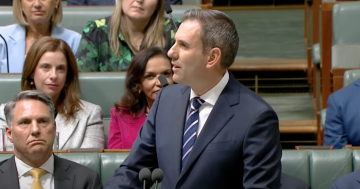Roxanne Calder* says playing office politics could be key to workers protecting their own legitimate concerns.
 Back to the office? We have upskilled and reskilled, adjusted, pivoted, and become more flexible.
Back to the office? We have upskilled and reskilled, adjusted, pivoted, and become more flexible.
But the skill that remains cardinal is your political astuteness.
In all likelihood, it is also the skill we have let lapse.
Without the water cooler moments, pre, post and on the way to meeting conversations, we have missed out on the everyday social interactions.
The interactions that give us shared experiences, build relationships and social capital, integral to surviving office politics.
Politics is the process of exercising influence to obtain preferred outcomes and political skill is the ability to direct the influence.
It is a skill many of us have never really mastered.
Instinctively, we view office politics with distaste and the urge to avoid it.
At its worst, it can be toxic and dysfunctional.
At its best, it is advantageous for you and the greater workplace environment.
Politically skilled in organisational politics means you protect your own legitimate concern.
Office politics is inescapable and part of the fabric of every organisation.
Post COVID-19, and the smart operators are perspicacious workplace politicians.
This is how they do it:
They are clued into the landscape.
Returning to the office isn’t business as it was.
We wanted flexibility and it comes with consequences.
58 per cent of knowledge workers are in hybrid work arrangements, a significant proportion, but so is the 34 per cent of workers who have returned to the office full time.
The 34 per cent represent the competition for promotions, advancements, recognition etc., and allows for proximity bias, i.e., the tendency to overvalue colleagues that are physically present over those remote.
The disparity, diverse experience and competition created between remote, hybrid and office employees is omnipresent.
The savvy workplace politician has an arena to showcase their skills by being seen.
When in the office, they make a concerted effort to be visible and noticed.
They are on the campaign trail, shaking hands, listening, attentive and social.
For the times when they are remote, they are still in sight.
They answer calls and emails promptly, and for video conferences, their cameras are on.
They know the network.
Informal and formal structures control the political landscape, and both are powerful.
Formal structures are their boss, the CEO, and the systems and processes.
The informal network acts as your alliance, ally, and sometimes saviour.
The EA to their boss or CEO, or the Receptionist who has the ear to the Chief of Staff or Human Resources Director is all part of their informal networks.
Informal networks carry influence, represent unwritten, unspoken norms, codes, and habits, and vouch for you.
Or not!
Such influences carry authentic weight and are not to be underestimated.
Of course, it goes both ways, which is the art of politics.
The well-versed operator makes sure to advocate and act as an ambassador and or emissary.
They speak up for others and themselves.
This puts the office bullies at bay and reduces the negative instances of office politics.
They build relationships.
People like them.
Respect is iterated as the holy grail at work.
It is vital, but equally so is likeability.
Likeable means you are more easily approached, included and involved; imperative to being in the know.
When times are challenging at work, the persuasive office politician is not the downer, but rather a solution-based performer.
Unfavourable scenarios are recognised, but not dwelled upon and carried burden like.
No matter the position in a company, people instinctively gravitate towards an upbeat, consistent style.
It forms more trusted conversations, interactions and outcomes.
It builds upon the support network, i.e., who to go to for much-needed insight, information or favours.
We have this in our personal lives; why not work as well.
Their soft skills are on point.
Snug with building relationships are soft skills, and self-awareness and empathy are their trump cards.
They understand the other person’s perspective, the role they play and their impact.
They know it holds power, direct and indirectly.
Equally, they have a strong understanding of how others view them, if it aligns with their perception and intent, and are always finessing and tweaking.
Refined soft skills such as skilled communication distinguish between bragging and self-promotion and given our work doesn’t speak for itself self-promotion has become more significant since working remotely.
Like it or not, we are all office politicians; it depends on how active a role you choose to play.
Better to be a playing the part you choose than a pawn in someone else’s play.
*Roxanne Calder, author of ‘Employable – 7 Attributes to Assuring Your Working Future’, is the founder and managing director of EST10 – one of Sydney’s most successful administration recruitment agencies. She can be contacted at est10.com.au.











